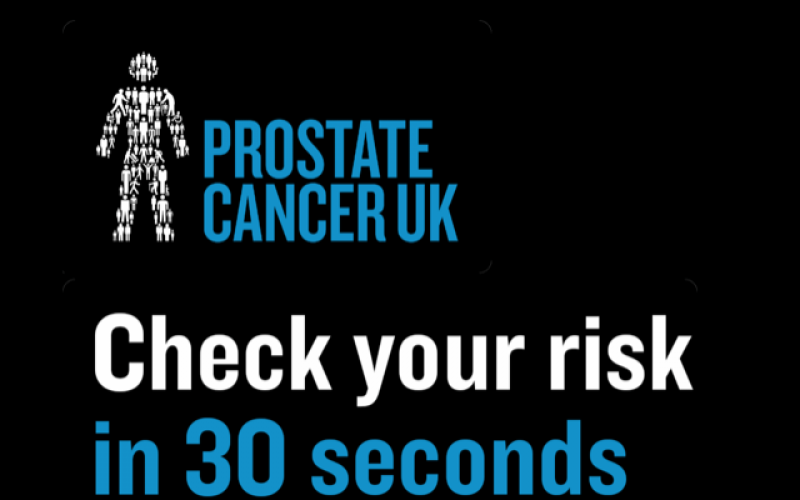Click here to use the prostate cancer risk checker, it only takes 30 seconds.
If you’re at risk of prostate cancer, speak to your GP about prostate health checks/tests.
For more information on prostate health checks/tests visit Prostate Cancer UK.
The Leeds Cancer Awareness team are running a targeted prostate cancer campaign in Chapeltown and Harehills. The team aim to increase prostate cancer awareness around risk and prostate health tests in Black African, African Caribbean and Black British men in the targeted areas.
1 in 4 black men will get prostate cancer during their lifetime.
Prostate cancer is the most commonly diagnosed cancer in men in the UK. Around 47,500 men get prostate cancer each year (UK), that’s 129 men every day. 1 in 8 men will get prostate cancer in their lifetime but for black men it affects 1 in 4.
What is the Prostate?
The prostate is a gland that sits under the bladder and surrounds the urethra (the tube that carries wee out of the body). The prostate’s main purpose is to help make semen.
Symptoms of Prostate Cancer
Most men with early prostate cancer do not experience symptoms, this means it is vital that men speak to their GP about prostate cancer risk and prostate health checks/tests.
If you experience:
- Trouble weeing/emptying bladder
- Feeling like your bladder hasn’t emptied properly
- Weeing more often
- Weak flow
- Sudden need to wee.
Speak to your GP. These symptoms are often caused by other non-cancerous illnesses, but it is always best to get checked.
Prostate Cancer Risk Factors
Most men with early prostate cancer do not experience symptoms, this means it is vital to know about your risk and to speak to your GP about prostate tests.
The three main risk factors for prostate cancer are:
- Getting older- it mainly affects men aged over 50
- Having a family history of prostate cancer i.e. if a brother or father has had it
- Being Black – 1 in 4 Black men will get prostate cancer.
For more information about prostate cancer risk, visit Prostate Cancer UK. Click the link below to complete the prostate cancer risk checker.
Risk Checker
To check your prostate cancer risk in 30 seconds, click here.
Prostate Tests
There are two main tests used to find out if you have a prostate problem, both take place at your GP surgery.
- The Prostate Specific Antigen (PSA) test. The PSA test is a blood test that looks at the amount of PSA in your blood, PSA is a protein produced by normal cells in the prostate but is also produced by prostate cancer cells. It’s normal to have a small amount of PSA in your blood but high levels may suggest you have a prostate problem such as an enlarged prostate, prostatitis or prostate cancer. If you notice any potential symptoms or are at risk of prostate cancer, you can ask your GP for a PSA test.
- Digital Rectum Examination (DRE). A DRE is used to see if you have a problem with your prostate, it involves a doctor or nurse feeling your prostate through the wall of your rectum (back passage). The test usually isn’t painful and doesn’t take long, it might just save your life.
For more information on prostate tests visit Prostate Cancer UK.
If you are aged 45 or over, speak to your GP about prostate health tests.
Other Resources
For more information on prostate cancer or to speak to specialist nurses, visit Prostate Cancer UK.
To learn more about the Leeds Cancer Awareness project’s work, visit Leeds Cancer.
To find out more about the prostate campaign and events, contact our team.
Don’t forget use the prostate cancer risk checker!
Prostate cancer UK – information for trans woman or a male-assigned non-binary person.




